
Bangladesh has rejected a claim by Myanmar that a family of five Rohingya refugees were “repatriated”, calling the claim “a farce”.
Dhaka, Bangladesh, MINA — Bangladesh has rejected a recent claim by Myanmar of taking back a Rohingya family in no man’s land, Anadolu Agency reported.
Last Sunday, the Myanmar government in an official statement on Facebook said: “The five members of a family… came back to Taungpyoletwei town repatriation camp in Rakhine State this morning.”
Photos posted alongside the statement showed one man, two women, a young girl and a boy receiving identity cards and getting health checks.
Bangladesh Home Minister Asaduzzaman Khan called this a unilateral step saying the family had never even reached Bangladeshi territory.
Also Read: UN Experts Warn Right Violations in Kashmir by Indian Authorities
“I hope Myanmar will repatriate all the refugee families within the shortest possible time,” he said, speaking to reporters in capital Dhaka on Sunday.
Bangladesh and Myanmar signed a repatriation deal last November, but Dhaka claims not a single refugee has returned. The UN maintains that the Myanmar government has been unable to assure safe return for the refugees, and houses in entire villages have been razed to the ground.
A senior official in the Bangladeshi Foreign Ministry, who spoke to Anadolu Agency on condition of anonymity due to restrictions on speaking to the media, rejected the claim calling it a failed attempt by the Myanmar government at convincing the international community that it was taking steps to repatriate the refugees.
The Bangladeshi Foreign Ministry has not made an official statement on the issue yet.
Also Read: At Least Nine Children and One Woman Killed in Pakistani Airstrike on Afghanistan
Unwilling to accept Rohingya as equal citizens
Civil society activists in Bangladesh have also been critical of the Myanmar authorities.
Iftekharuzzaman, executive director of Transparency International in Bangladesh, said the Myanmar government is unwilling to accept Rohingya as equal citizens.
“Myanmar’s claim of repatriation is not only a farce with Bangladesh but also with the international community,” he said.
Also Read: Pakistan Condemns Israeli Settler Attacks in West Bank, Al-Aqsa Storming
The Rohingya, described by the UN as the world’s most persecuted people, have faced heightened fears of attack since dozens were killed in communal violence in 2012.
Since Aug. 25, 2017, some 750,000 refugees, mostly children and women, fled Myanmar when Myanmar forces launched a crackdown on the minority Muslim community, according to the UN. Local media reports suggest at least 6,000 Rohingya have been living in the no man’s land — a small strip of land along the border between Bangladesh and Myanmar.
At least 9,000 Rohingya were killed in Rakhine state from Aug. 25 to Sept. 24, according to Doctors Without Borders.
In a report published on Dec. 12, the global humanitarian organization said that the deaths of 71.7 percent or 6,700 Rohingya were caused by violence. They include 730 children below the age of 5.
Also Read: China Criticizes US-Drafted UN Gaza Resolution as Vague, Abstains from Vote
The UN has documented mass gang rapes, killings — including of infants and young children — brutal beatings, and disappearances committed by security personnel. In a report, UN investigators said such violations may have constituted crimes against humanity. (T/RS5/RS10
Mi’raj Islamic News Agency (MINA)
Also Read: Former Bangladesh PM Sheikh Hasina Sentenced to Death





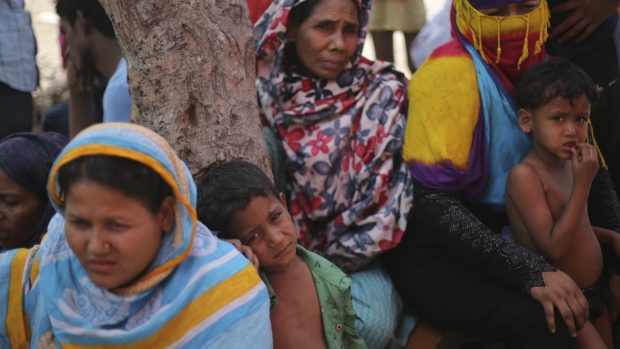


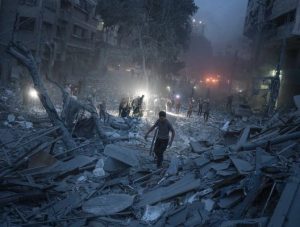

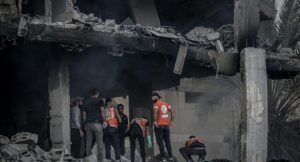

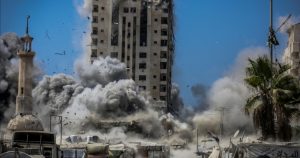



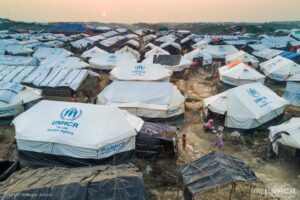
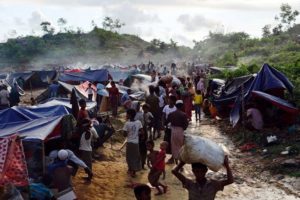
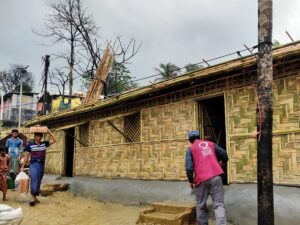
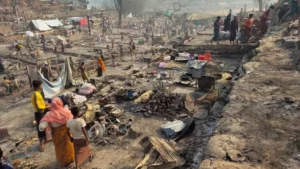









 Mina Indonesia
Mina Indonesia Mina Arabic
Mina Arabic